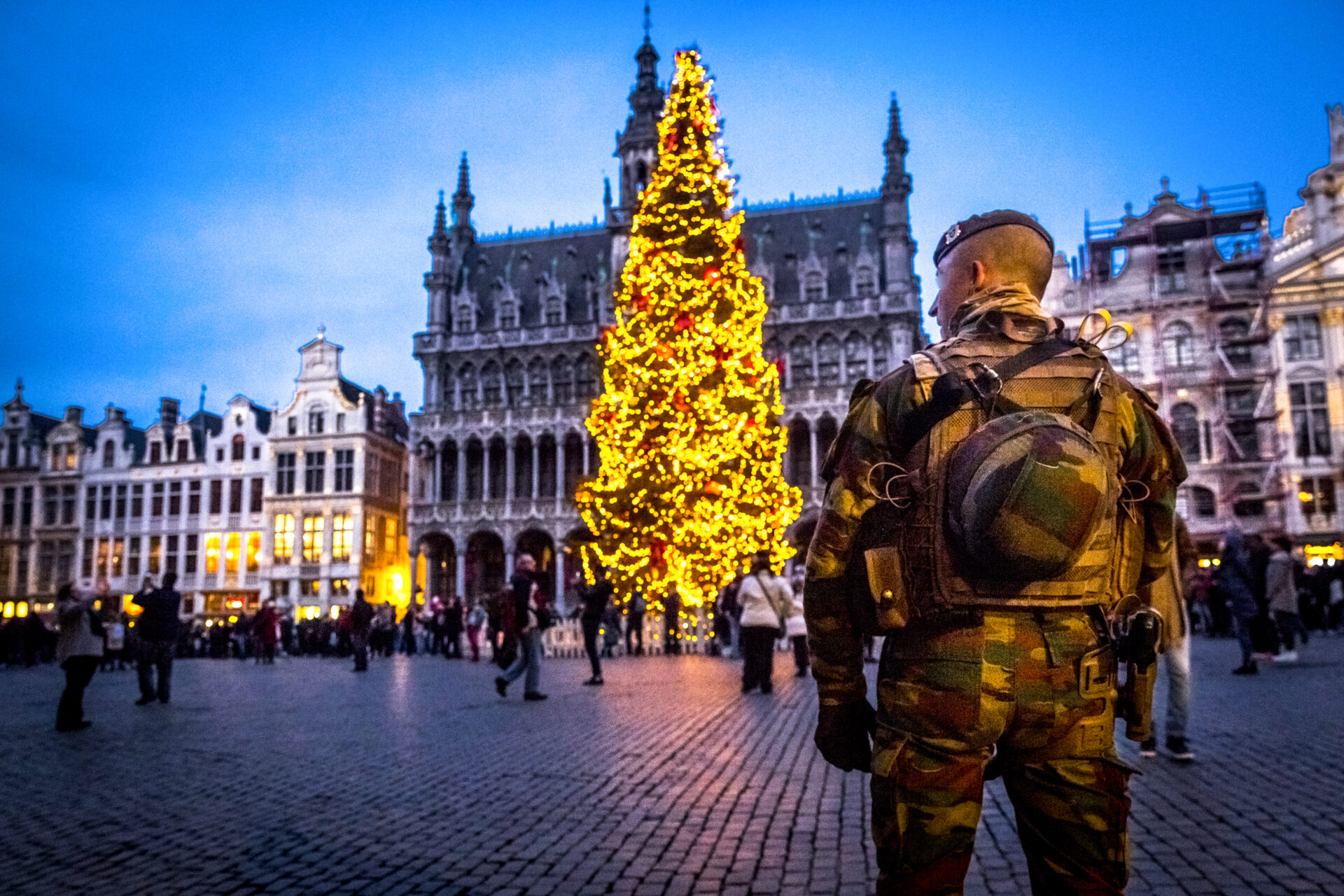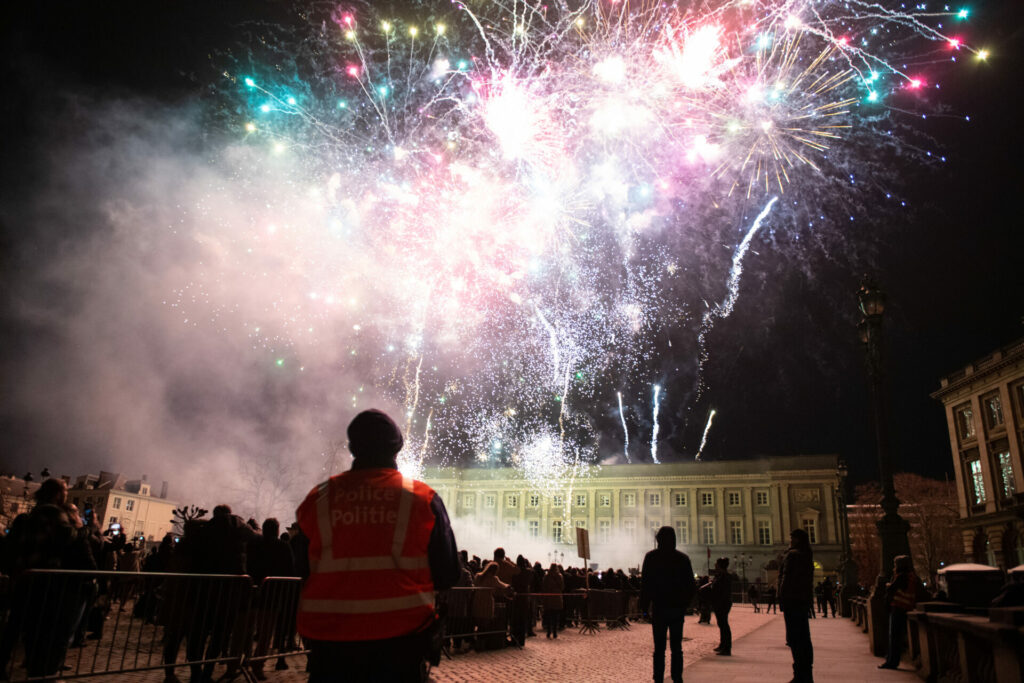The Brussels terror attack in October and recent (attempted) attacks in other European cities have led to concerns about the safety of large public gatherings during the festive season. With Belgium's capital now crowded at any moment, security measures have been announced.
The 16 October shooting in Brussels claimed the lives of two Swedish nationals and took place days after a 15-year-old boy and his alleged accomplice were arrested in Germany on suspicion of planning a militant Islamist state-style attack on a Christmas market.
On 14 October in Arras (northern France), a man suspected of Islamic radicalisation stabbed a teacher to death and wounded three others. Also in France, a 23-year-old German-Filipino tourist was killed last weekend in an attack near the Eiffel Tower in Paris. The suspect, known for his radical Islamism, was said to have first attacked a couple with a knife on a bridge.
On Monday, terrorism expert Pieter Van Ostaeyen (KU Leuven) stated that it is realistic to expect more such attacks in Belgium, warning that the Paris attack could inspire other extremists to commit similar attacks. In an interview with Het Laatste Nieuws, Van Ostaeyen said that he will "definitely not celebrate New Year's Eve in central Brussels" for fear of a terrorist attack.
His comments raise questions about the risk of another (terror) attack happening in Brussels during this festive period. On Tuesday, European Commissioner for Home Affairs Ylva Johanssen said that Europe faces a "huge risk of terrorist attacks" in the coming weeks.
Europe faces a “huge risk of terrorist attacks" over the holiday season due to the fallout from the Israel-Hamas war, the EU's Home Affairs Commissioner Ylva Johansson warned on Tuesday #EuropeNews pic.twitter.com/6wppoSg0FS
— euronews (@euronews) December 5, 2023
Mass gatherings at threat level 3
In subsequent statements to BRUZZ, Van Ostaeyen clarified that it was not his intention to scaremonger and qualified that he was not speaking in reference to specific figures or a concrete threat.
A source close to security operations in Belgium confirmed to The Brussels Times that OCAD (the Coordination Body for Threat Analysis) has not reported a possible terror threat in Brussels around the New Year celebrations.
Van Ostaeyen later explained that he avoids all mass gatherings "no matter where they take place". It's a decision that has some statistical reason as crowds are more likely to be the target of attacks. In recent years, Christmas markets have been the target of terror attacks.
In light of the residual risk, Belgium is at threat level 3, which has been in place since the shooting on 16 October. It will likely remain in force across the country. The level is categorised as "serious" and means that the threat is "possible and probable."

The Grand Place at Plaisirs d'Hiver in 2017. Credit: Belga/ Hatim Kaghat
"We were monitoring the situation and also saw what happened in Paris and Germany in the past few days, and therefore requested a threat analysis from OCAD," Laura Demullier, spokesperson for the Crisis Centre, told The Brussels Times.
The analysis was passed on to local police zones and authorities, who were encouraged to exercise extra vigilance. "We request this analysis every year around this time and always call for vigilance," Demullier explained. "But we are now at terror level 3 this year, which is why we emphasised the need to be extra vigilant to the local authorities and police and to put measures in place during big events."
How police apply this information varies depending on the location. In some instances concrete blocks will be placed on the perimeter of crowded zones; in others more police in plain clothes officers (as well as those in uniform) will patrol. Another strategy is to adapt mobility policies to ensure that cars stay away from pedestrians.
Situation in Brussels
Zeynep Balci, a spokesperson for Brussels Minister-President Rudi Vervoort, told Bruzz that the region is taking the necessary measures to guarantee the safety of revellers on New Year's Eve as much as possible.
She referred to the Region's own crisis centre. Since 2020 this consists of an underground bunker filled with screens that show every street in the capital via images from surveillance cameras and drones. During major events such as demonstrations or the Brussels 20 run, representatives of all local police zones, the Federal Police, transport company STIB and the Brussels fire brigade will be present at the crisis centre.
Related News
- Brussels terror attack: Fourth suspect charged and imprisoned
- 'Rise in threats': Brussels and Walloon schools shut on Monday due to bomb alerts
The crisis centre will of course be operating during New Year's Eve and it will coordinate with the Brussels-Capital-Elsene police zone, where the largest celebrations take place on 31 January.
However, Van Ostaeyen stressed that it is impossible to check everyone at gatherings like New Year's Eve, adding that citizens should above all "assess the situation realistically."

